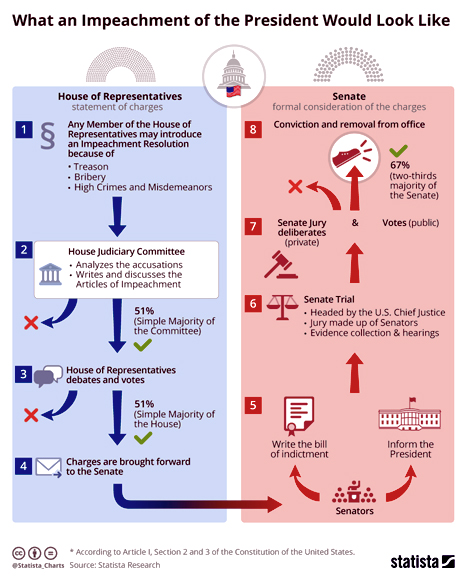[T]he culture rewards smartness with success because “smartness” is, definitionally, the ability to succeed in the culture.
-Robert Hayman, The Smart Culture: Society, Intelligence, and Law
No one suggests Donald Trump is not “smart.” He has certainly figured out how to succeed in the corrupt culture we live in. But does that mean he should be allowed to preside in office until January 2021?
On a Radio Free Kansas radio show recently, I had an exchange with a Trump supporter who was convinced Congress was thoroughly and irrecoverably corrupt. I did not disagree with him. “Yeh. But no one is more corrupt than your man Trump.” He didn’t disagree with me. He just felt Congress’ corruption made the body inert and irrelevant to the question of Trump’s culpability. It may be the case that corruption is the major challenge of our times; after all, those who benefit so richly from corruption tend not to see it as corruption; they see it as entitlement. It’s those at the bottom scrambling and conniving for scraps who are corrupt.

I’m of the school virtually everyone in this culture is, from the moment the doctor smacks your little pink or brown ass, complicit in the “swamp” to some degree. Even the most saintly get a bit of it on them just waking up in the morning and living life. We can debate this in theory, of course. My response to the Trump caller was, just because Congress may be corrupt (“the best money can buy”) doesn’t mean citizens should not ask — demand! — that members of Congress find their backbone and do the right thing. The caller and I did not come to a meeting of minds; but we parted on friendly terms.
Years ago, I photographed the constitutional scholar Robert Hayman (quoted above) who had just written a dense, thoughtful book on intelligence and the law, a book I read end to end and heavily underlined. Hayman’s book was partly motivated by Charles Murray’s controversial book The Bell Curve, which argued, according to Hayman, “smart folks get ahead and not so smart folks don’t.” The book suggested that those “not so smart folks” didn’t deserve to get ahead; it also walked through a minefield of racial (some said “racist”) sociology and history. This would seem to explain why Donald Trump repeatedly dog-whistles Maxine Waters, the tough African American congresswoman from California who advocates impeachment, as “a low IQ individual.”
As I was photographing Hayman on a street corner for a magazine, I was jumping around snapping frames and making small talk. I said something about current events and the US Constitution and Hayman remarked with a smile and a symbolic patronizing pat on my head.
“You know, John, they abrogated the constitution long ago.”
“Oh, right,” I said, as I kept my eye working in the viewfinder.
Hayman’s remark has stuck in my craw for decades. What I took Hayman to be saying was that the Constitution was a dormant document gathering dust as the powers-that-be made daily decisions that affected us all. It wasn’t so much that the document was dead and buried; the point was the provisions and rights written in the constitution in the 18th century (a time of slavery and the beginnings of Indian genocide) were not automatically applied to citizens; they were only applicable if one was able to fight hard for them. And in that hard fight, having money and power made all the difference; too many unconstitutional laws and actions existed in practice unchallenged. As our famous South Philly Congressman Ozzie Myers referred to Washington DC on his ABSCAM tape, “In this town, money talks and bullshit walks.” Of course, that was long before the internet and social media and the swarm-effect elevated bullshit to being a tool of algorithmic power. Professor Harry Frankfurt famously let it out of the bag in the opening of his little 2005 gem On Bullshit: “One of the most salient features of our culture is that there is so much bullshit.” Frankfurt’s thinking would seem to predict the incredible success of a Donald Trump in this so-called “post-truth world.”
As billionaire impeachment activist Tom Steyer drills home in regular TV ads, never has a US president cried out for impeachment like Donald Trump does. He’s a man who would understand Professor Hayman’s remark that the US Constitution had been abrogated long ago as a positive statement. This is a man who said with a chuckle of amazement, “I could stand in the middle of Fifth Avenue and shoot somebody and not lose any voters.” The implications of this seem to thoroughly terrify people like Speaker of the House Nancy Pelosi; it’s why she’s so cautious about pursuing impeachment. Due to her long experience, she knows too well how corrupt it all is to the core. Given the especially corrupt, amoral “base” nature of Senate Republicans, she’s afraid an impeachment effort will backfire and ironically strengthen the man, assuring his re-election. In this sense, Pelosi’s fear is actually a fear of the American voter; it’s also a trust in entrenched, corrupt power over democratic will. Better to suck up Trump’s abuse for 18 months and beat him in November 2020.
But is that, in the end, smart? Or is it, in fact, cowardly?
I’m going to send this essay to my representative, Madeleine Dean, and will emphasize the following question: Will 18 months of very public punking of the US Congress by the US President effectively turn the US Congress into a punk? In my rule book, if you’re treated like a punk and do nothing about it, you are a punk. It’s true, this is a very male- and masculine-oriented term, and Ms. Pelosi may feel she’s on the cusp of a white-dress feminist wave. But the fact is Donald Trump represents a very real and powerful male/masculine backlash. Maybe the question should be in whose court are we playing this polarized war politics?
One of the first acts of the TV comedian elected president of Ukraine was to dissolve parliament. Fortunately, our constitution does not permit this; if it did, Congress would no longer even exist. We have an unprecedented executive with no political experience and the instincts of a tyrant, and the only thing preventing him from punking Congress into total impotence, shame and ridicule is Professor Hayman’s “abrogated” constitution.
Pelosi remains adamantly cautious, while at the same time she and others have been dropping feelers that impeachment may happen. She recently said Trump’s behavior was so rotten he was going to “self impeach.” That felt like code for he’s pushing us to the point we have no choice. My newly elected congresswoman regularly speaks out on MSNBC for impeachment; others have suggested a full House vote may be coming soon on whether to order the Judiciary Committee to begin impeachment hearings.

With a Democratic Party dominated House of Representatives, once the decision is made to go for impeachment of the president (the equivalent of a grand jury indictment), it’s virtually a given it will happen. Impeachment only requires a simple majority. Once the House got serious and the process got rolling and the evidence we’re told exists is revealed, it could be pulled off fairly quickly. That puts President Trump in the docket of the US Senate, whose members would act as jurors under the special oversight of Supreme Court Chief Justice John Roberts. The challenge is that Senate conviction requires a 2/3 majority, or 67 votes. Considering Senate Majority Leader Mitch McConnell and his lockstep pack of Trump lovers, this is a formidible hurdle to surmount.
Those who have read the 450-page Mueller Report say it amounts to a dense prose litany of impeachable “crimes and misdemeanors.” In a Senate trial, these narrative details would be front and center backed up with live testimony and documentary evidence. What is most critical, in an impeachment hearing or trial, President Trump, members of his White House staff, his Attorney General and his unscrupulous band of lawyers would be unable to stonewall like they’ve been doing vis-à-vis House subpoenas.
Given the Trump style, a House commitment to impeach would clearly be an escalation of the Washington political war in process. To pull it off through the House and into the Senate would require no small amount of commitment, passion and even ruthlessness. The most important aspect of an impeachment and trial would be the public hearings, the most compelling ones scheduled in prime time — as was done in Watergate. Americans would be glued to the high drama on their TV sets.
It will take such public testimony on TV to overcome the effect of the brilliantly dishonest, four-page Barr Opinion that misrepresented for purposes of spin the massive Mueller Report. The big question — and the risk for Democrats — is can and will a public trial turn enough Republican senators to vote to convict the president? If after being impeached, like Bill Clinton, Trump walked, would he be wounded enough to go down in defeat in 2020? Or would acquittal make him seem invulnerable and even sexy to his base? Might it turn him into a true authoritarian monster that would mean the end of real democracy and a constitutional government based on checks-and-balances? All these questions explain Pelosi’s caution.
One thing feels certain: Whether or not the Senate convicts, if the House doesn’t step up to its constitutional responsibility to impeach a president like this, his punking of that institution will continue, and increase with success, to the point, by 2020, the institution would be a living joke. It would be like sawing off one leg of a three-legged stool. Given the willful punking, the only way out is a fight.
If chaos is the fertile soil in which Donald Trump’s malignancy grows, then Congress must wrestle with him in that mud to uphold their power given to them by the US Constitution. To borrow Professor Hayman’s phrase, look at it as “de-abrogating” the Constitution; if for nothing else, fight the good fight to re-invigorate the dusty old thing from a Disneyworld-like dead relic to a living, breathing document that provides the American people security from, and comfort in the face of, corrupt politicians.
The current wave of nationalism seems to me an over-compensation for the profound globalizing influences of internet and social media reality. The US Constitution is the establishing document for this nation; Congress should see an impeachment battle as getting all this right “for the people” of this nation by challenging the narcissistic criminality now ensconced in the White House. Our every-four-years presidential election campaigns (known by many as the “silly season” for good reason) can be seen as the closest thing we have to a national conversation. Impeachment in the House and trial in the Senate should be incorporated into that conversation.
